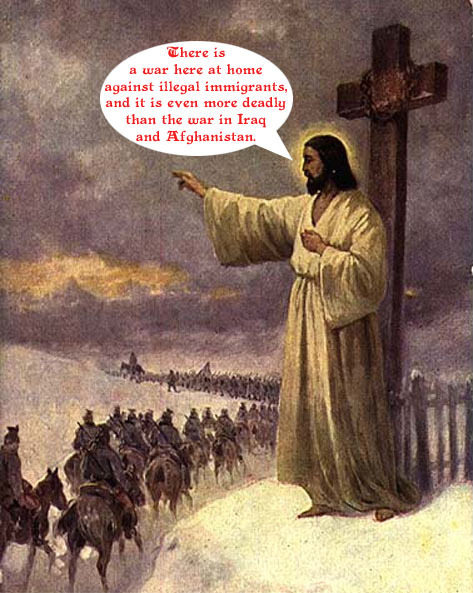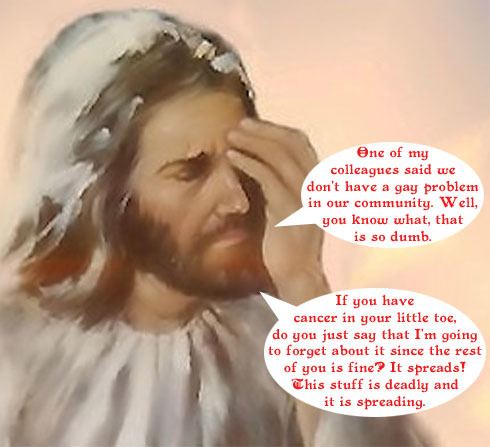N.B.: This is just one of what will be at least two posts on this paper (.pdf) linked via a comment at Crooked Timber.The citizens of a modern democracy are trying to be well informed about social-science questions that confound even social-science professionals - because of the difficulty of using controlled experimentation to answer them. . . . When public-opinion researchers enumerate the shocking levels of factual ignorance displayed by members of the public, they are really catalouging the haphazard and often incoherent theorizing in which we, the people engage in our capacity as amateur social scientists.
Jeffrey Bernstein
Taking one's cue on social theory from Karl Popper might seem to be the height of intellectual honesty. Featuring most prominently an admission of the limits of human understanding and knowledge, and the fallibility of even the most cherished ideas about the way the world works, Popper's theory of science and theory change, as well as his more directly relevant writings on politics and social thought (
The Open Society and Its Enemies (2 vol.) and
The Poverty of Historicism in particular) certainly offer to a budding social theorist the opportunity to make the case for the limits of any social theory, let alone the potential success or failure of the intellectual project of the social sciences.
While it is certainly true, as Jeffrey Bernstein makes explicit, that the salient feature of our social life is the complexity of contemporary social and political phenomena and the impossibility of grasping it
in toto, he misconstrues Popper's (and natural scientist's generally) understanding of the structure and role of theory. Furthermore, and more explicitly in reference to the question of ignorance and self-governance, he ignores certain salient features of social and political life that even a non-professional recognizes. Most important, his insistence on his own understanding of what he calls "rational-choice theory" as operative in political decision-making is hardly very rigorous. It seems to me that these two points invalidate any idea that operational ignorance of what even Bernstein calls "trivia" (although ignorance of some more significant facets of our social life certainly give one pause) bears any relationship to questions of the success or failure of governance.
First, as to the question of Popper's fallibilism and the role of theory formation, it is important to remember that Popper was swimming against the rushing current of logical positivism when he offered the notion that scientific theories are not and can never be
verified, but rather are only significant and operationally important to the extent that they have, as yet, to be
falsified. In the limited case of the natural sciences, this theory offers a view of the openness of the scientific enterprise to the reality that even the best theories are no more than organizational structures for what we know
so far.
It is important to remember a significant feature of Popper's approach to scientific theories that goes unmentioned by Bernstein (and, for that matter, by Popper in his writing on social and political philosophy). Theories, for Popper, are nothing more than a series of what he calls "basic statements", which are themselves nothing more than singular instances of facts. Again, we have to understand what Popper was doing here. In the first place, he was contrasting "basic statements" with the "protocol sentences" of the logical positivists. These latter were intended to be a logically coherent structure by which theories were operationally affective. Basic statements, on the other hand, were simply reports of experimental results; "facts" in this case were nothing more or less than points plotted on a graph. A series of basic statements related to one another operationally, i.e., because they consisted of reports from experiments on particular related phenomena, are what make up a theory. Precisely for this reason, then, one can understand how fallibilism worked for Popper; there would always be another experiment, another report, another basic statement to be added to a theory. The accumulation of factual data, over time, refined and more than occasionally falsified not just particular theories, but whole research programs (to borrow a phrase from Popper's colleague, Imre Lakatos).
On an epistemological level, theories, for Popper, were an attempt to end-run modernist objections to philosophical realism. In a collection of essays entitled
Objective Knowledge, Popper pronounced himself a "realist", insofar as scientific theories were actual descriptions of the way the world
really is constructed without reference to human agency. He went on, at one point, to posit the possibility of the accumulation, at some point, of enough basic statement to have the least chance of falsifying our understanding of the world. Be that as it may, this dedication to a certain kind of what can be called, for the moment, naive realism, raises as many questions as it solves (which is the way any important philosophical notion operates, I suppose).
His objection to much of social science, at least as was practiced at the time he was criticizing it, was the presence of explicit theories, announced by researchers beforehand, that governed the way data was not only interpreted, but gathered, delimited, organized, and thus organized as social theories. Yet he never understood that his own naive realism operated in much the same way in the natural sciences. Operating from either an explicit or implicit philosophical predisposition is not, by itself, the mark of a lack of intellectual integrity, nor should be thought to render irrelevant or incomprehensible or incoherent what results. Even the most naive positivist in the social sciences would hardly disagree that gathering and interpreting data, governed by the limits and rules of any social theory, hardly qualifies as either surprising or even a significant observation. Whether one is a dedicated Marxist, or Friedmanite, while this may determine
which data may be considered important or unimportant for reasons of statistical comparison, it is the results of the statistical analysis that are important for understanding whether the issue at hand has in any way been clarified.
In other words, theories are no more than collections of data that are, themselves, governed by principles as to significance and importance.
Now, this relates to the question of ignorance and social and political life precisely because Bernstein ignores the structure of "theory" as put forth by Popper, as well as his own philosophical commitment to a kind of realism that dictated his own approach to how theories are to be understood. Fallibilism, while certainly clarifying the way the scientific enterprise operates in a way the positivism and its dedication to verification did not, is only part of a far larger whole, which includes a principled understanding of theories as
really representing, in a philosophical sense, the way the world can be understood without any reference to human agency. Yet, on this very point there is a certain philosophical incoherence precisely because, as "statements", Popper admits that a "statement" can only be falsified by
another statement. No experiment or observation can make false the statement, "All swans are white" (to use the example used by Lakatos in a long paper defending and clarifying Popper's fallibilism). In other words, Popper's claim of realism cannot be made coherent precisely because he understands a disjunction to exist between "the world" and our theorizing about the world.
Whether it is the phenomena of the physical sciences (Popper is relatively silent on biology, except to say that Darwin's Theory of Natural Selection isn't science, a point creationists have latched on to far too often), or social life, then, our understanding is always limited by our commitments to certain principles that dictate how we understand such things as "data", "significance", and how scientists go about their business of interpreting this stuff. Without a full report of Popper's fallibilism, Bernstein presents a truncated view of Popper's fallibilism that seems to indicate that Popper's objection to the social sciences is rooted in a principled grasp of the limit of human understanding. In fact, Popper's objection is that the social sciences are not philosophically and theoretically coherent; there are abundant approaches and definitions of what the social sciences are and how they should operate that are mutually exclusive. This meta-theoretical muddle creates the situation where there is no way,
a priori, to judge whether or not this or that social researcher grasps the way his or her work is theory- and mistake-laden.
Now, as far as I know, there aren't too many practicing social and political scientists who would argue the contrary opinion, viz., that their findings approach the level of explanatory power of the physical sciences. Indeed, statistical significance in the social sciences is far lower than the physical sciences precisely because even the most broad theoretical understanding and statement about social behavior is understood to grasp and explain such a small part of our social life. To put this in far simpler terms, most practicing social scientists understand the complexity of our social and political life; even the most dedicated ideologue of one sort or another would insist on the explanatory limits of his or her pet theories (if he or she were intellectually honest).
All of this - the miscontrual of Popper's understanding of theory and the limiting case of the social sciences - is important to grasp precisely because Bernstein wants to argue,
pace Popper, that the level of basic factual ignorance on matters of social and political significance preclude any kind of successful government action in a representative republic. Our institutions are laden with far too much information for any individual to grasp in any kind of totality; our mediating institutions are not up to the challenge of providing any kind of framework for understanding. Levels of either trivial or significant ignorance are too often apparent to be ignored by researchers. This should lead even the most dedicated proponent of the positive possibilities of state action to pause before insisting that our institutions can operate at even some minimal level of success, let alone efficiency, precisely because it is impossible to have all the information available to make these kinds of judgments with anything like scientific rigor.
This is wrong, pure and simple, because whatever a particular social scientist's theoretical predilections, he or she would certainly admit that we always operate from a limited, whether practical or theoretical, knowledge base. For me, the two national elections in 2006 and 2008, and the social change represented by public opinion surveys, are good test cases for an understanding of social phenomena that takes both trivial and significant ignorance in to account, while still showing that the public does, indeed, act in what it considers its own best interest.
In the aftermath of the terrorist attacks in 2001, the public rallied around Pres. Bush and continued to support his Administration, even as questions arose as to the factual basis, for instance, of his accusations of the collusion of the Iraqi government and those who planned and carried out the attacks on New York and Washington. In the face of those events, Bush's decision to act against those who had attacked the US, regardless at the time of their truth or falsity, gave the public the confidence that he was, in fact, acting to protect our most basic national interest.
He won re-election in 2004 precisely because he reminded the public over and over again that, in the face of a concerted effort to attack and kill Americans on their own soil, he had moved to retaliate in order to prevent similar events from occurring in the future. Then, in the fall of 2005, Hurricane Katrina roared across the Gulf of Mexico and destroyed much of the City of New Orleans as well as the marshy coasts of southern Louisiana and the tourist spots on the coast of the state of Mississippi. The Bush Administration's
failure to act with both the resources and a sense of the significance of the devastation in this case caused his support among the American people to plummet precipitously, from which they never recovered. That members of his party in Congress supported this lack of action in the face of a natural disaster as destructive in its own way as the terror attacks four years previously caused support for them to crash as well.
In the wake of this, the Republicans lost control of Congress in 2006. While particular races in particular states were driven as much by local and state-wide concerns as anything, the general sense - without reference to particular points of fact or other issues that supporters of either party could point to - that the Republican Party had failed to act adequately to help the American people who faced destruction from natural forces indicated they were not the party to lead. This simple equation - failure to act means failure of leadership means the withdrawal of electoral support - is enough to account, for me, for the results of the 2006 mid-term elections. The on-going disfavor of the Bush Administration led to Pres. Obama's election in much the same way.
While close watchers of political events can certainly point to counter-factuals to this particular view of events, my own sense is that this explanation is at least as theoretically powerful as any other. More important, it does not rest on a prior commitment to a moral or intellectual dedication to issues of general social knowledge or ignorance. The folks who made this simple equation in their heads may or may not have been able to name the nine Supreme Court Justices, or the Secretary of Labor or Interior or the head of FEMA under President Bush. What they did grasp, however, was that, unlike after an attack by a terrorist group, a similarly destructive event was not met with the same kind of resolve, let alone commitment to resources. This failure is enough to account for the ill fortunes of the Republican Party the past four years.
Now, does this test case account in a more generalizable way, making the case that the amount of trivial or significant ignorance on the part of the American people is less relevant to the success or failure of representative democracy? I think it does precisely if one considers how
the public view the role of certain actions of the state, as opposed to the details of public policy reviewed by analysts. Whether or not voters in Bend, OR or Pawtucket, RI know whether the fourth or fifth amendment to the US Constitution protects them from self-incrimination is less important than whether or not those voters understand that their elected officials have succeeded or not in the most basic function of any government - the protection from harm, and assistance when those protections break down (as they are wont to do).
Our representative institutions operate as they always have, with limited resources, including information. Insisting that this lack of information indicates some kind of practical limit to state action precisely because of the theoretical and practical ignorance is based on a faulty grasp of Popper's thought, as well as a reliance on a view of rational-choice theory that ignores other ways this may operate in regard to social and political action.
. . . and this is far longer than I intended. My apologies to your attention span.





